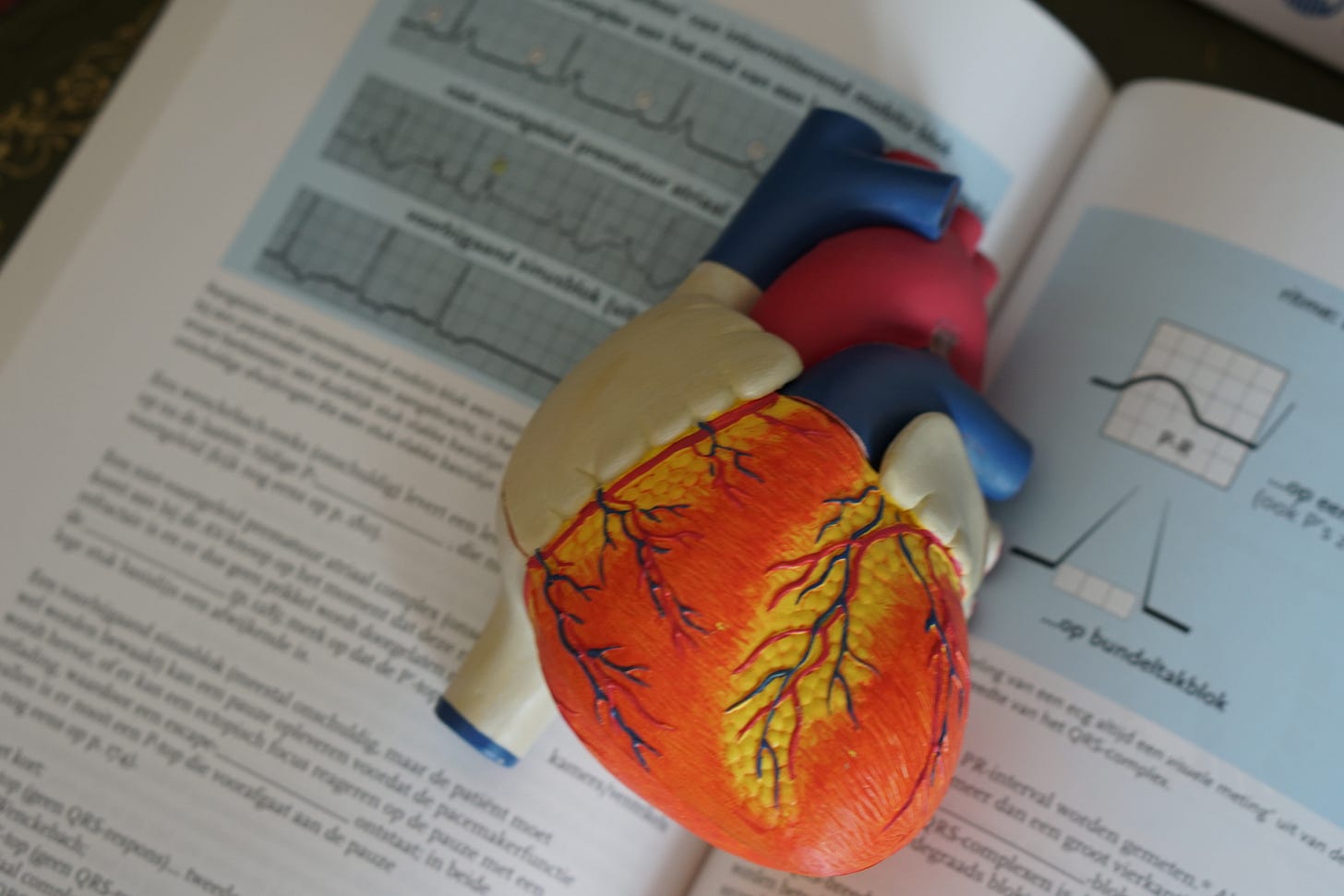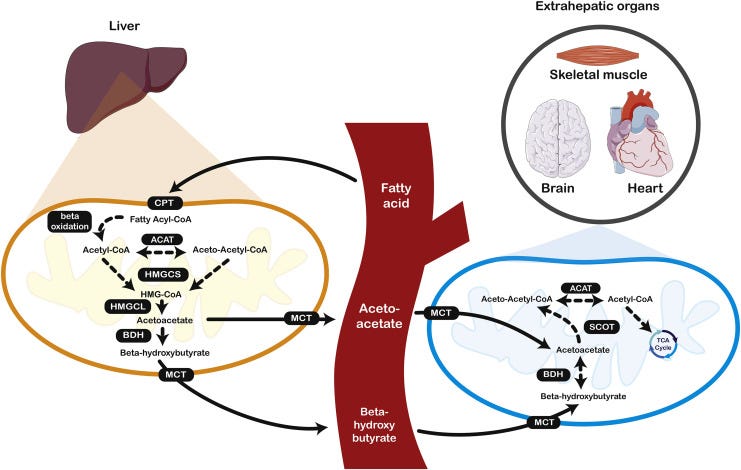Ketones for Heart Health
The pleiotropic benefits of exogenous ketone supplements.
Welcome to this week’s subscriber-only post. If you’re a free subscriber, you’ll get to read a preview of this article, while paid subscribers will get the full-length post.
Most of my content is (and will remain) free, but more in-depth posts like this, which require extra time and research to compile, will be released to those offering paid support.
The good news is that for just $5 a month of $50 per year, you gain access to everything I publish, including my archive of posts. If supporting is something you’re able to do and you find my content worthwhile, please consider becoming a paid subscriber. In any case, your readership is appreciated more than you know.
Ketogenic and low-carbohydrate diets are popular due to their well-evidenced yet debatable effects on weight loss and body composition. Some individuals go “keto” for the mental and cognitive benefits, to increase their energy levels, or to enhance some aspect of physical performance.
New avenues for the application of ketosis are focusing on understudied areas such as longevity (lifespan extension) and cardiovascular health.
This is where things get interesting. Rather than simply a weight-loss tool, ketones might have a role for preventing disease and extending lifespan and healthspan in humans. Therefore, ketones could have benefits for people suffering from or at risk for CVD, but also exert salubrious effects for healthy individuals who might want to use ketones as a supplement.
The advent of exogenous ketones makes this possible.
Ketone Supplements Primer
When we fast for long periods of time or eat a very low-carbohydrate (i.e., ketogenic) diet, our body “switches” its primary fuel source from glucose to fatty-acids, which the liver can convert to ketone bodies including acetone, acetoacetate (AcAc), and beta-hydroxybutyrate (BHB).
When you measure ketones using one of the devices available, you’re either measuring acetone (in breath), AcAc (in urine), or BHB (in blood). All three can indicate whether or not you’re in ketosis, which is defined as a blood ketone concentration greater than or equal to 0.5 millimolar (mM).
A ketogenic diet is one way to induce ketosis.
Exogenous ketones, or “ketone supplements” can put you into ketosis absent extended fasting or carbohydrate restriction. If you’re looking for an in-depth discussion on exogenous ketones, you can listen to episode 6 of my podcast where I talk with exogenous ketone expert Dr. Brianna Stubbs about the health and performance benefits of exogenous ketones.
There are several types of exogenous ketones, and 3 popular variations include medium-chain triglycerides (MCTs and MCT oil), ketone salts, and ketones esters. While I’ve personally tried only MCTs and ketone esters, I believe a majority of the research is now favoring the use of ketone esters both as an “anti-aging” intervention and a physical/mental performance-enhancing agent.
Ketone esters appear to offer a greater tolerability over ketone salts and MCTs (which aren’t even ketones, but must be converted into ketones once ingested).
There is a heightened interest in using exogenous ketones to treat a variety of metabolic diseases, CVDs, and to enhance healthspan and lifespan. The research is pretty interesting, and many studies have shown how ketone bodies may positively affect cardiovascular health and performance.
How the Heart Utilizes Ketones
As it turns out, our heart really loves to use fat (fatty acids) as a fuel to produce ATP, with almost 40–60% of cardiac energy production coming from fatty acid oxidation. The heart can also utilize amino acids, lactate, and relevant to our discussion, ketone bodies, for ATP production.
Interestingly, it seems that our heart utilizes ketones for energy in proportion to their concentration in our blood. In others words — increasing ketone body concentrations will increase the heart’s utilization of ketones.
In CVD, the heart loses its ability to switch between fuel sources, and may actually develop a preference for ketone bodies as a source of energy. Evidence has shown that heart failure is associated with a greater amount of ketone utilization by the heart.
If this is the case, then strategically increasing ketone levels in patients with heart failure and other CVDs should provide a source of energy for the heart and counteract many of the adverse functional and structural changes associated with these diseases. This could be done by providing ketone esters to boost blood ketones, or “supplementing” with ketones like you would a daily multivitamin.
Some ketone supplements are more effective than others. Here is a general overview of how different ketone “supplements” can affect levels of blood ketones.
1,3 butanediol: elevates blood BHB to 0.3–0.8mM (“light” ketosis)
MCTs: elevate blood BHB to 0.3–1.0mM (“light to moderate” ketosis)
Ketone salts: elevate blood BHB to 1.0–3.0mM (“optimal” levels of ketosis)
Ketone esters: elevate blood BHB to 2.0–6.0mM (“optimal” levels of ketosis)
Elevating ketones using any of the above methods will induce ketosis which could have a range of cardiovascular benefits, one of which is an improved energetic function of the heart. But beyond the energetic effects, studies show that ketones may provide an array of cardioprotective benefits.





